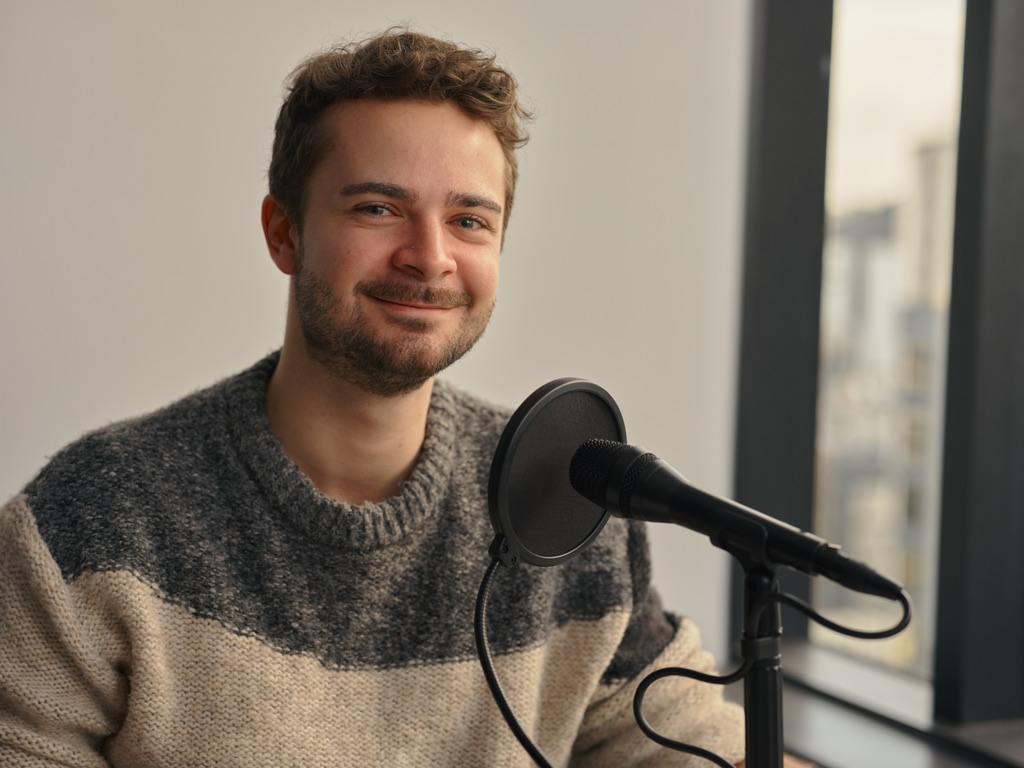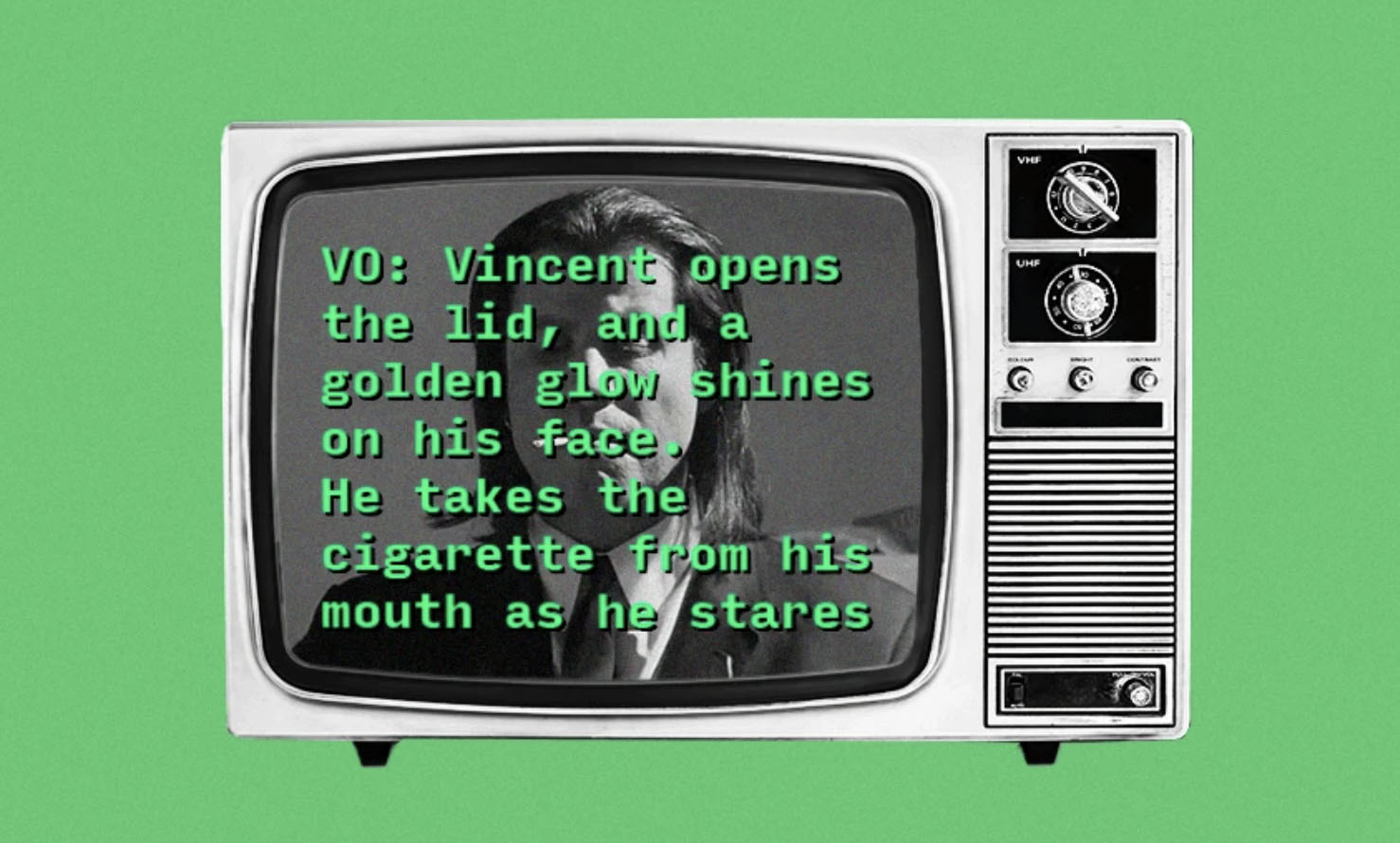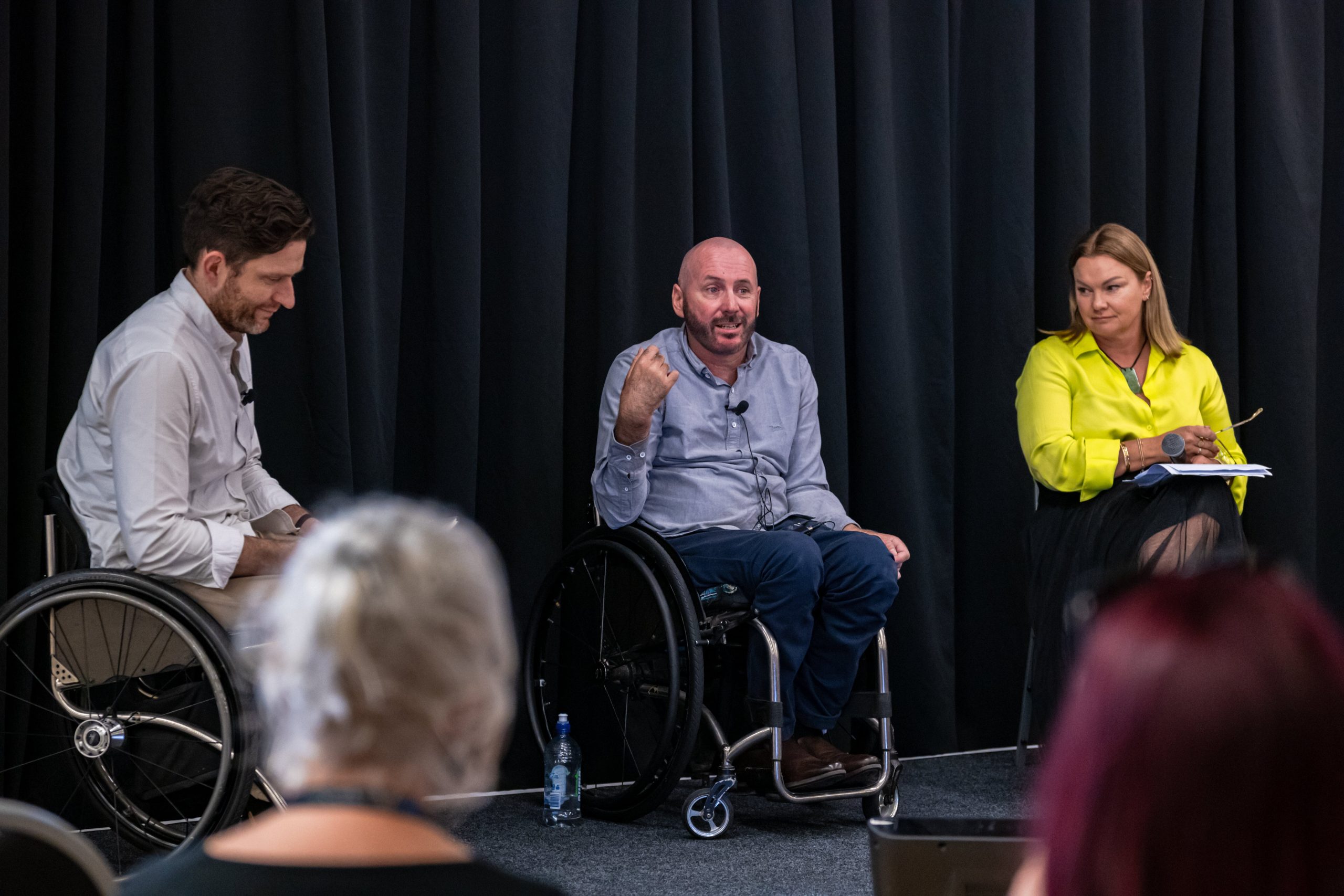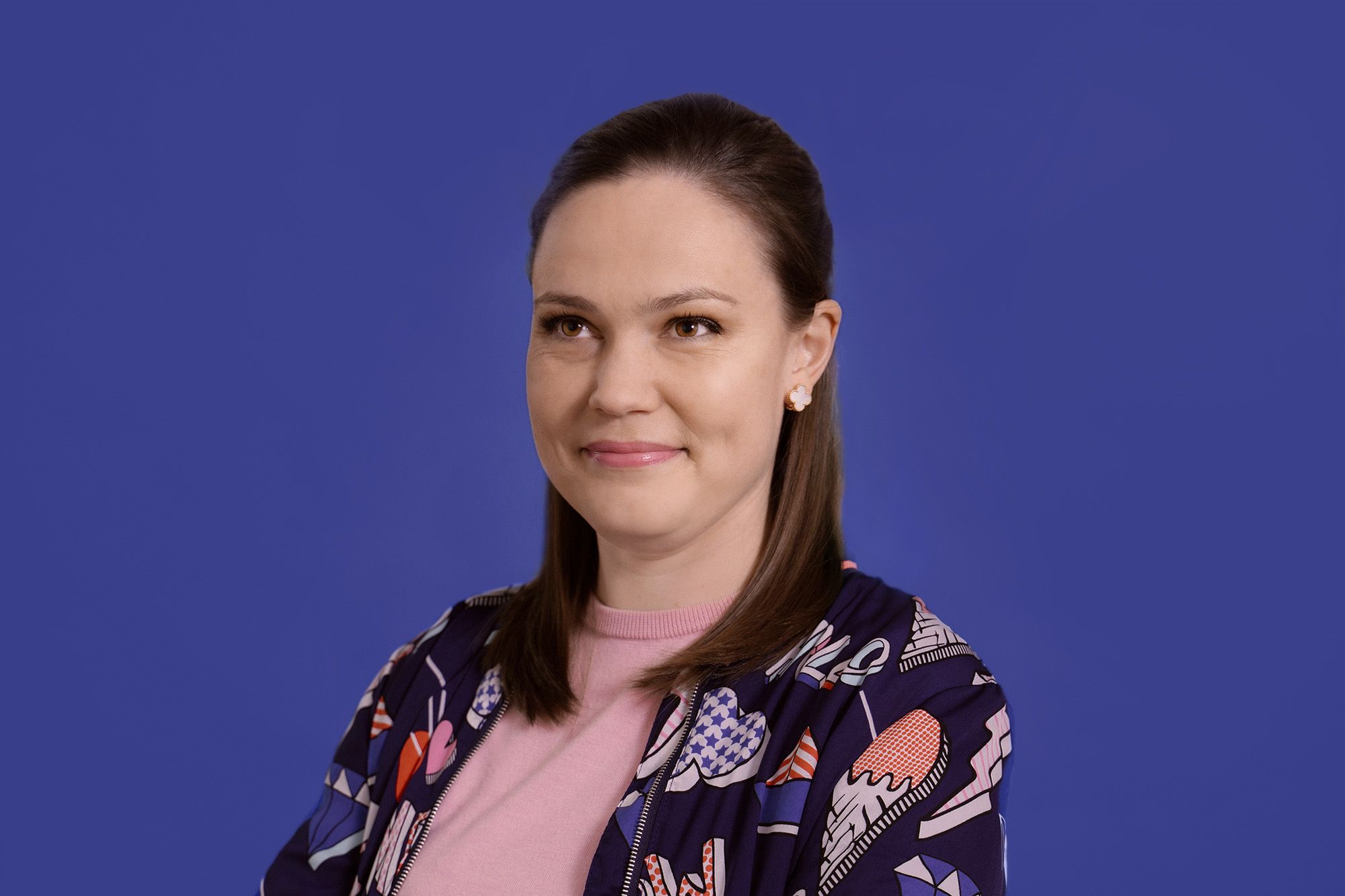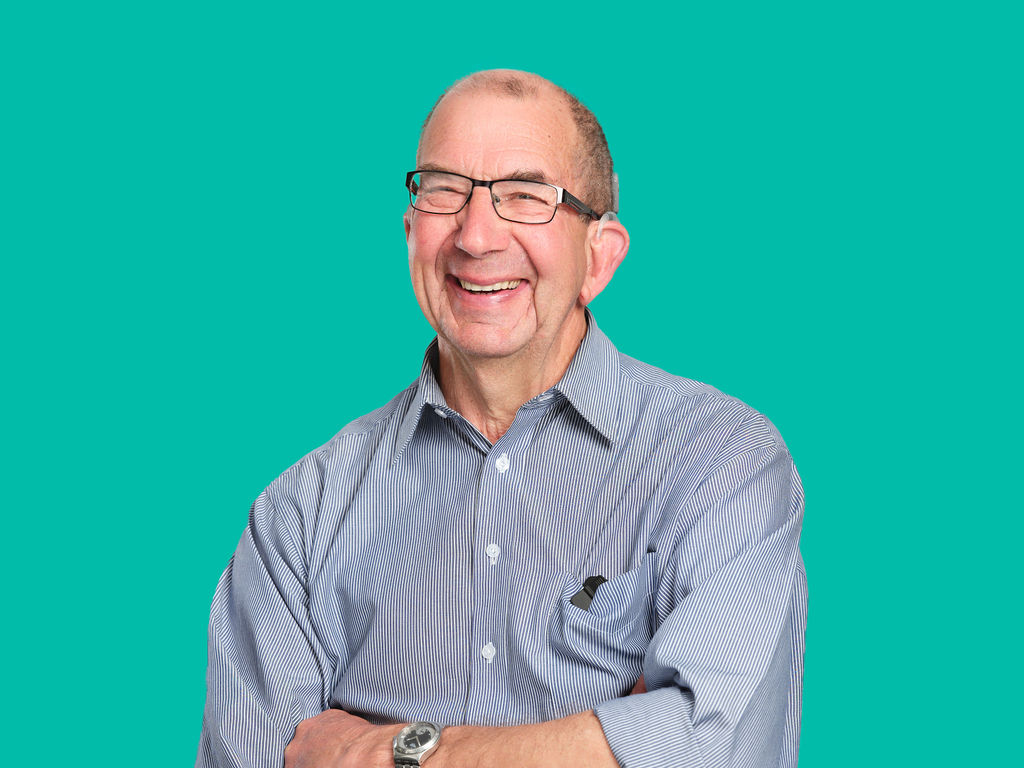Wendy Youens was the founding CEO of Able, having led its establishment as an independent organisation in 2013. She has been involved with media accessibility all her working life – her first job out of university was as a Caption Producer in the TVNZ Captioning department. Wendy has steered the ship, navigating it safely through multiple storms, including the COVID pandemic and, concurrently, the $2mil funding boost from NZ On Air. Wendy left Able in 2022, handing the baton to our current CEO, Dan.
Wendy! Able is turning 10. How does it feel?
We had a very scrappy start-up vibe when we first launched, and so looking at Able 10 years on, I just feel so proud of how far it’s come, and also how far the services have come. I think, ultimately, that’s what’s important – the services Able is providing for the Deaf/hard-of-hearing and blind/low-vision community. The organisation that formed in 2013 delivered on what it promised to do and continues to deliver on it and grow.
How did you personally experience the move out of TVNZ? How did the decision to become an independent entity come about?
Back at TVNZ, they had made a strategic decision to outsource the access services that were being provided by the department at the time. It was basically, like, well, what’s next? Everybody was in agreement that the services should continue, it was just a question of how it should continue. And so all the different options were assessed – that was my work at the time, was to assess those options.
It made sense to make the most of the investment from NZ On Air, and over the previous couple of decades, they had developed this department of people invested in equipment and knowledge. But what I think made sense was the fact that, actually, the system we had in place at the time wasn’t really working that well. So we had a department within TVNZ that was bound by TVNZ strategy and prioritisation of projects. So often in our department, we were pushed back when we wanted to expand – it was just hard to get any cut through with developing our services. By unleashing Able, it created the space for growing the services and for developing.
It must have been quite overwhelming. I read that you were 27 when that happened, and you’d never been a CEO at that point.
No. So my first job out of university was as a Caption Producer for TVNZ. And then I was an editor, then a team leader, and then stepped into the Captioning Manager role. Basically, I was a middle manager at TVNZ and amongst my fellow managers of other departments, I was at least 5 to 10 years younger than them. So I already felt that I was somewhat making it up as I went along.
And I remember multiple times just thinking, ‘Oh, what have I got myself into?’ But I also had decided that I was really keen to see it through and try to advocate for a good solution for the services that we provided and for the community that we served.
Setting up Able was a huge project. You know, Lewis Grant, who’s board chair still, was right alongside me during that time. He’d already been appointed as board chair during the initial establishment phase. And then Paul France was one of the founding trustees. So Lewis and Paul were great supporters of me.
I’d love to talk about the launch of audio description, because that happened in 2011, I believe. And it seemed like you were thrown in the deep end – you know, trying to establish those services when they hadn’t been in New Zealand before.
I had just taken on the Captioning Manager role and I remember the person who was handing over to me said, ‘Oh, by the way, you’ve got some NZ On Air funding to launch an audio description service.’ And I remember just thinking, I don’t really know what audio description is.
I also remember hunting through a DVD shop – this was obviously in the dark ages in 2011 – looking for DVDs that had audio description on the back so that I could listen to audio description and actually check it out. It wasn’t really available online.
I should make a big mention of Clive Lansink and Rose Wilkinson from, at the time, Blind Citizens. Rose and Clive and multiple other people, including Thomas Bryan from Able’s board, had been advocating for an audio description service for about a decade before it launched. They were so kind and generous and also were very keen to impress upon me the urgency of launching this audio description service that they’d been waiting for, for so long.
What kind of challenges did you have with adapting to the evolving technology, and how has it changed the way we produce the services?
Technology has come such a long way. I mean, I started with TVNZ in 2007. So that was 16 years ago. And, you know, it was a very manual process. It was listening to programs and typing them out. The programs were all on tape, and we had foot pedals to operate the tape players. I hear historical stories from some of our long standing employees, like Tracey Dawson, about using things like the dictaphone to record the news.
The first huge jump forward was introducing speech recognition in captioning, which just allowed us to decrease the delay in live captions and also just get out a more verbatim transcript, which was amazing and made a big difference for Deaf and hard-of-hearing people.
AI has just really taken off in the last few years, and I think that it’s all led to greater efficiency. And Able’s always had a focus on quality, and I’m proud that has continued. But it’s just about harnessing that technology as much as possible for the benefit of viewers.
Able’s also had to adapt to the change in how people watch television – specifically the shift to digital, although there’s still quite a lag in terms of On Demand platforms being able to support captioning and audio description.
It was a real challenge to get those platforms to be accessible, basically. And we also ran into problems where sometimes a platform would be accessible in terms of it could provide captions, but it was really difficult to, say, turn the captions on, right? Or really difficult to turn an audio description on, which was obviously an issue for people that are trying to navigate a visual platform. And so it was just an uphill battle, and I think it still is now.
I think there’s still so much work to be done by broadcasters. And it’s really, you know, the message used to be, ‘Oh, it’s about cost’. I think that broadcasters can’t stand behind that anymore.
The issue now is prioritisation, as broadcasters obviously have a limited pool of funds and a limited pool of people to do the work on their platforms, but they absolutely should be prioritising accessibility and, obviously, it’s good for people that absolutely rely on access services, but it’s actually also good for everyone.
What has it been like to work with the people that use the services? What is that relationship like?
I’ve been so lucky over my time both at TVNZ and Able to work with members of the Deaf and hard-of-hearing and blind and low-vision community. They have been so generous to me and, you know, have in some ways have had to put up with my questions, sometimes my missteps, and have just continued to generously kind of share their knowledge and advocate for their services, and give their time to impress upon me the importance of their services.
And I would say that that’s something that steered my leadership of Able, always remembering that, at the end of the day, there was a viewer that relied on our services. And so things like, does it matter if the show doesn’t have captions? Yes, it does, because somebody is going to turn on that show and go, ‘Oh, it doesn’t have captions’.
But my conduit to those viewers was the wonderful advocates from the communities that we serve, particularly the organisations Blind Citizens NZ, Blind Low Vision NZ, Deaf Aotearoa and National Foundation for the Deaf. All do such important work and are all so generous with their time.
I think it’s really important that Able has representatives on its board of the communities that we serve. The current reps are David Kent and Thomas Bryan, who, again, both were so generous with me, with their time and knowledge. It’s really important to have people governing Able that keeps you in line. You know, we’re not there to improve TVNZ’s content or to improve the view count on their website. We’re not there to advertise shows. We’re there to serve an audience that is important and that needs our accessibility services.
Where do you hope Able goes now in the future?
I loved my time at Able. But I also feel that it was the right time for me to step down. I shepherded Able through its expansion and so it was a great time to hand over to someone new. And I was super excited and proud to hand it over to Dan. Dan was at the launch of Able back in 2013, so that is a nice full-circle moment.
I think where Able goes next is a broader expansion of services and for Able to become the go-to place for media accessibility in New Zealand.
One thing I’m really proud of at Able is the team culture that we built. I think it’s a really warm and welcoming workplace with a unique team culture. I think Able treats people well and that is something to cherish and uphold at all costs. I think sometimes you don’t recognise it until you’ve left it.
